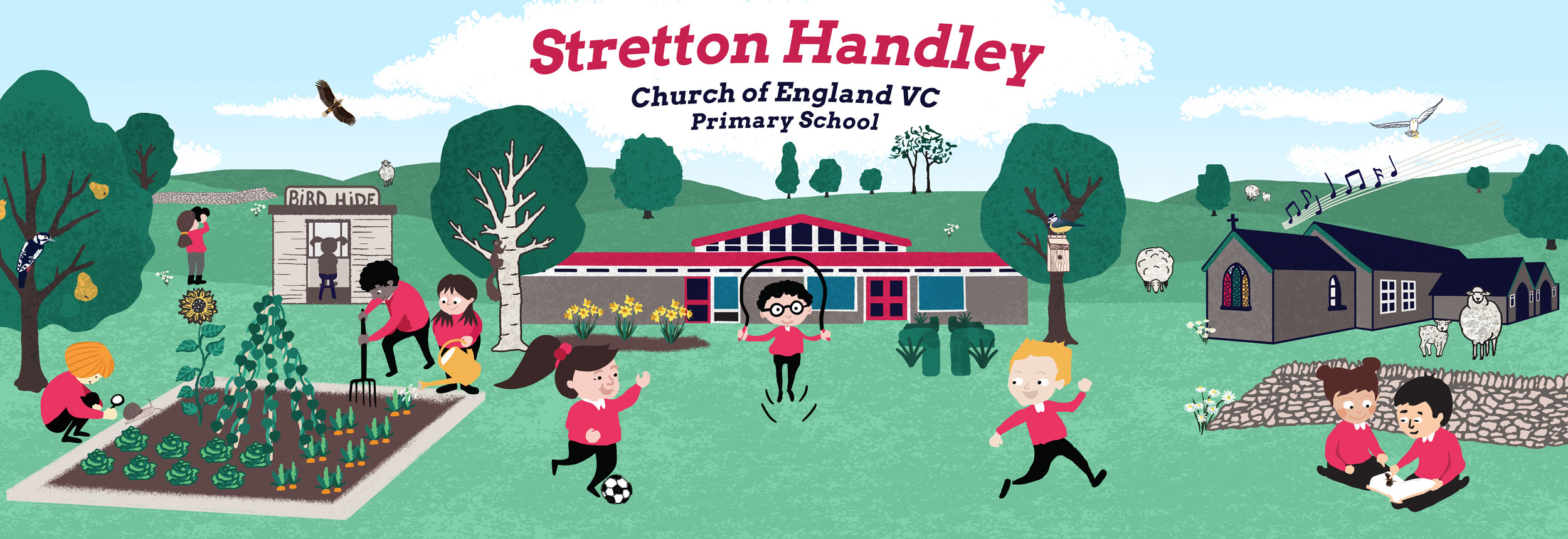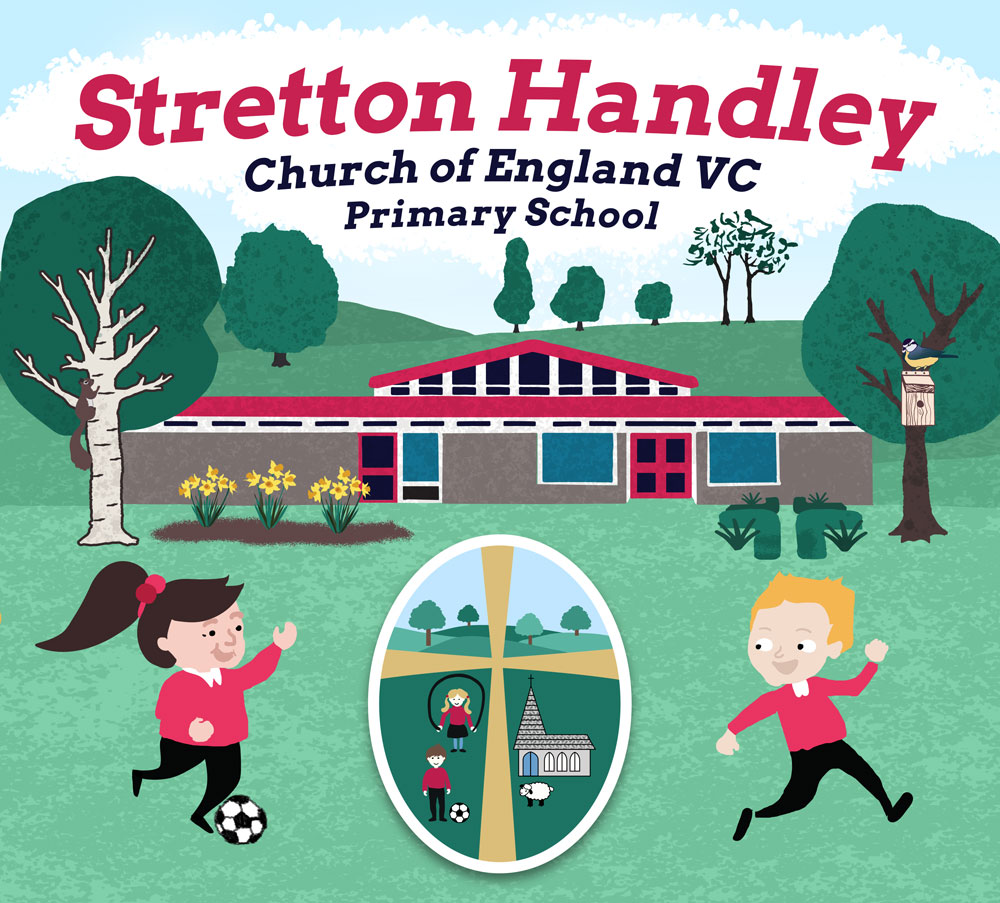Intent
At Stretton Handley CE Primary School, our reading curriculum is designed to foster a love for reading that will enable children to transfer the skills learnt across the curriculum and beyond. We will achieve this by developing a child’s reading ability to ensure that key skills and vocabulary are reinforced. Key reading strands are deliberately constructed so our children’s word reading (including phonics), comprehension skills and knowledge are built upon each year. Our children will be immersed in a variety of reading experiences and meaningful contexts that are aimed
at promoting pride, confidence and enjoyment in reading.
Implementation
Early reading is prioritised in EYFS and KS1. It is underpinned by a coherent and systematic phonics scheme taught daily.
In EYFS, phonics is taught through daily phonics lessons which are well structured and pacey using the Twinkl Scheme approach that supports the learning of the phonemes and corresponding graphemes. The children then apply their learning in a meaningful context through a range of carefully planned activities that are matched to their interests and abilities. In addition to this, the children are exposed to a wide range of quality texts that are readily accessible in the learning environment. They enjoy shared reading with an adult and use a range of books to begin guided reading sessions. Children are given a school reading book after baseline assessments have been complete, these are usually focused on observation, story telling and rhyme. From Phase 2, reading books are matched to the sounds they are learning in class, we have The Big Cat Phonics scheme of books and these are used to develop sentence reading and fluency. As they progress through the phonics phases and book bands, the children will be able to apply their growing phonic knowledge and their growing understanding of the layout and features of written texts, as well as starting to develop basic skills in deduction and inference. In EYFS children are also introduced to tricky and high frequency words through the phonics scheme and are taught to read and write these words. By the end of EYFS, children are expected to have completed Phase 4.
Key Stage One
By the end of Year One, the expectation is for children to be secure in Phase 5. In Year One, the children complete the National Phonics Screening Check – a statutory assessment that was introduced in 2012 for all Year 1 pupils. It comprises a list of 40 real words and nonsense words that assess phonics skills and knowledge learnt through EYFS and year 1. The check is very similar to tasks that the children already complete during phonics lesson. Year 2 continue the teaching of phonics at Phase 6 in the same way as EYFS and year 1. In year 1 and year 2 guided reading is completed. In small group sessions the texts used are closely linked to the phonic stage that the children are working in and the sessions also develop their ability to discuss and analyse a text, using skills such as prediction and developing a growing vocabulary. These texts often link to the topics throughout the year and provide the opportunity to widen vocabulary.
Children who are unable to achieve the phonics expected standard at the end of Year 2 will proceed to reading intervention support in Year 3. Phonics is continued in KS2 for those who need it, including application practise with decodable reading books. Reading interventions such as additional daily phonics, reading practise with an adult or an intervention reading scheme linked to Big Cat Phonics is used.
Key Stage Two
As children progress in to Key Stage 2, they revise and consolidate the phonics learnt so far. They also continue with guided reading sessions with the aim of exposing children to a range of texts that are linked to their reading ability but also provide a greater element of challenge and to further develop their comprehension skills in line with the expectations of the National Curriculum. Small group guided reading sessions are planned and also whole class reading alongside comprehension activities via The English Skills boxes and First News. Children continue to have an individual reading book, moving on to free readers when it is assessed as appropriate. In addition, the children share high quality class texts through which the full range of English reading and writing skills are taught, as well as opportunities for reading across the curriculum.
Reading for pleasure is modelled by all adults across the school and children throughout the school are able to read books in designated reading spaces. There is dedicated ‘Read to Succeed’ time planned daily to enhance this. We are passionate about reading and within school and run ‘Read to Succeed’ challenges to promote home reading. Home reading is encouraged through the use of home reading books and also the online system Epic Books.
Impact
Impact is measured in EYFS and KS1 through termly and end of Phase phonics assessments which assess the sounds the children know as well as the reading of tricky words. From Year 1, reading comprehension assessments are used as an assessment tool during each term and the results added to the whole school Reading Tracker. Book bands are also tracked across the school by the English Lead. The impact is measured through the use of formative assessments throughout the year. These assessments are used to inform home reading books as well as guided reading sessions. The assessment tool is used to record whether the children are working towards the age-related expectations, at the age-related expectations or exceeding the age-related expectations. These judgements will be quality assured by subject leaders using first-hand evidence of how pupils are doing, drawing together evidence from pupil interviews, observations of tasks, reading tasks, work scrutinise and discussions with pupils about what they remembered about the content they have studied.


